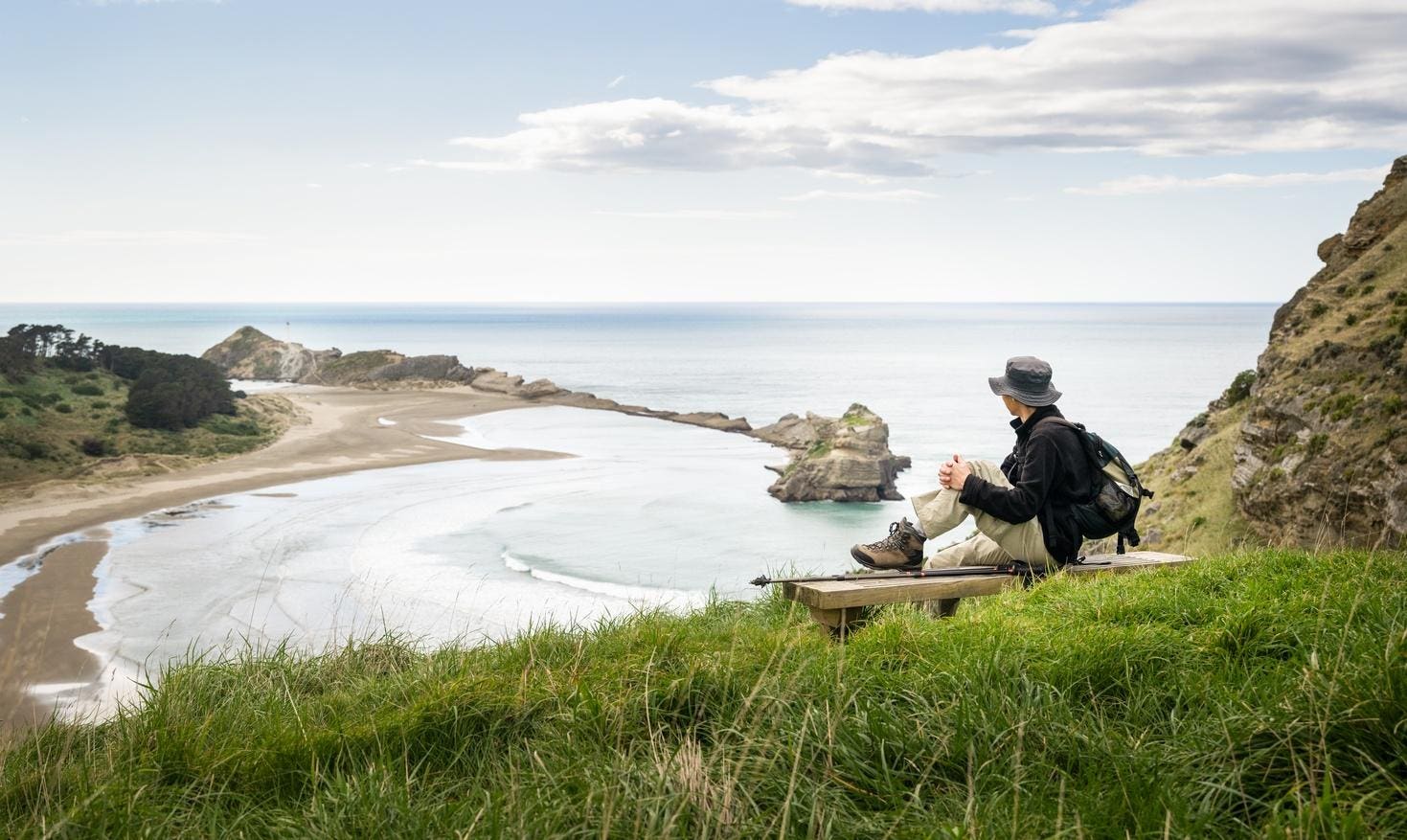
It’s that time of year when pundits release their “best of” lists, rounding up their predictions of what will be popular in the year to come.
Currently, “the best places to live overseas” is a hot topic, and this makes sense, as there’s more interest in moving abroad among Americans than ever before.
For many, the results of the U.S. presidential race in November supercharged the desire to move abroad. Searches related to “leaving the country” skyrocketed in the aftermath of the election, according to Google Trends.
Because it’s so popular, there’s likely more information about moving abroad available online now than ever before. However, more information doesn’t not equate to good information.
Many of the current “best of” lists—especially those that focus on overseas retirement—are misleading because they feature countries where it’s very difficult for the average American to get residency. In some cases, the residency requirements are so onerous that it’s practically impossible for retirees to set up life there.
Residency is often glossed over entirely, although it may be the determining factor in your ability to live in another country. Residency pertains to your legal right to live there long-term, so unless you’re satisfied with the 30- to 90-day stay that a tourist visa usually allows, obtaining residency should be a priority.
Here’s an overview of countries that feature in many “best of” lists right now that don’t make sense for retirees because of their residency policies.
Canada
Canada is on many Americans’ radars as a place to move—especially those who were unhappy with the election results. Searches for “how to move to Canada” peaked on Nov. 6. It came in first in CNBC Travel’s list of places Americans want to move following a disappointing election result.
It also came in sixth in Business Insider’s “The 10 best foreign countries for a comfortable retirement” and eighth on Global Citizen Solutions’ “Best Countries for Americans to Retire in 2024.”
It’s understandable that Canada would feature so prominently on these lists. It’s close to the U.S. and it’s familiar, with a mostly English-speaking population and a lot of cultural crossover. However, assuming that you’re not moving to Canada for work, you’re not seeking refugee status, and you don’t have family ties to Canada, it can be difficult to obtain residency.
Canada does not have a retiree-specific visa, nor does it have an “independent means” type visa, whereby residency is obtained by proving financial solvency (in other words, showing that you have enough income to support yourself and won’t become a drain on public resources).
The majority of the visa options that Canada offers are available to skilled workers in specific fields. For example, British Columbia offers skills-based immigration to people with backgrounds in healthcare, construction, and technology.
These visas are designed to fill specific job vacancies, so they assume that applicants will continue to work after relocating to Canada. There is no residency option for straight-up retirement in Canada.
New Zealand
New Zealand holds a reputation for incredible landscapes, great healthcare, and friendly people. It’s a highly sought-after destination and featured far and wide on current “best of” lists, including Business Insider’s list of best countries for a comfortable retirement, Global Citizen Solutions’ list of the best places to retire in 2024, and Natixis 2024 Global Retirement Index.
But you need to have considerable wealth to establish residency in New Zealand (again, assuming that you don’t have family ties to the country and you aren’t seeking refugee or employment status).
If your intention is to retire in New Zealand, the easiest residence permit to qualify for is likely the Active Investor Plus Visa. This assumes that you’re a high-net-worth individual, however. To qualify, you must have NZD$15 million (about $8.5 million) to invest in New Zealand for four years.
This visa allows you to stay in New Zealand indefinitely, but the required investment amount is beyond the average retiree’s budget. It’s about 141 times the mean average annual expenditure of Americans 65 and older, according to the Bureau of Labor Statistics.
Singapore
Singapore came 29th U.S. News & World Report’s rankings of the best places for a comfortable retirement. The island nation is highly rated for quality of life, coming first among Asian cities in Mercer’s Quality of Living City Ranking in 2024. It has excellent infrastructure and healthcare, and it’s extremely safe and well appointed.
However, if you don’t have family in Singapore and aren’t applying to work or study, the hurdles you have to jump over to get residency are remarkably high. The island has high population density and seems reluctant to hand out Singaporean residency and citizenship.
For U.S. retirees without family ties or aspirations to work in Singapore, the Global Investor Programme is likely the most direct route to residency. It’s aimed at high-net-worth individuals and requires a substantial business track record to qualify.
There are different options to qualify for permanent residency under the program. The Family Office Principals requires five years of entrepreneurial, investment, or management track record and net investible assets of at least S$200 million (about $147 million). Needless to say, this option isn’t accessible to the average U.S. retiree.
Australia
An English-speaking land of beautiful beaches with a high standard of living, Australia is a desirable country for tourists and expats. It comes in fourth place in CNBC Travel’s survey showing where Americans would like to move, and it also comes in fourth in Business Insider’s 10 best foreign countries for a comfortable retirement.
But Australia no longer offers a retirement visa, and it has reduced the number of investment-based visas it previously offered. To retire in Australia, Americans would likely have to seek residency through the Business Innovation and Investment Program.
The Investor Stream allows you to stay in Australia for up to five years, but you must be nominated by a state or territory to invest AUD$2.5 million (about $1.5 million). You must also have net business, investment, and personal assets of at least AUD$2.5 million and score at least 65 on the points test, which assesses your age, education level, and financial assets, among other factors. The average American is unlikely to meet these requirements.
Where Should U.S. Retirees Look Instead?
U.S. retirees should look at countries that welcome them with open arms. Panama, Belize, and Costa Rica, for example, roll out the welcome mat for American expats.
They not only offer retiree-specific visas that are easy to qualify for; they even offer incentives and perks for establishing residency, like the ability to import your household effect duty-free, zero local tax burden, and special discounts on local medical, restaurant, and utilities bills.
Other countries, like Portugal, Spain, and Greece, don’t offer retiree-specific visas but instead make “independent means” visas available, whereby proving sufficient monthly income makes you eligible for residency.
The thresholds are generally low enough that the average retiree can reasonably qualify. For Portugal’s D7 visa, proving that you receive about $1,500 per month should make you eligible to apply.
If you’re interested in moving overseas, you should act on visa opportunities as soon as possible, assuming you meet the requirements. Visa policies are subject to constant change, and they tend to become more restrictive over time.
The Best Kinds Of “Best Of” Lists
U.S. retirees should look to “best of” lists that are published by people with specialist insight on moving abroad—those with decades of experience in advising on this topic rather than those who have just recently joined the trend.
The best advice usually comes from people with first-hand experience at living abroad—people who actually live the lifestyle that they recommend to readers.
Also look for “best of” lists that go deeper into the realities of living abroad. They should include practical information, like the nitty-gritty of residency and taxes, as well as the potential downsides—all the unsexy but necessary factors to consider. “Best of” lists that only discuss idealistic aspects of life in a new country are fun to read but limited in usefulness.



